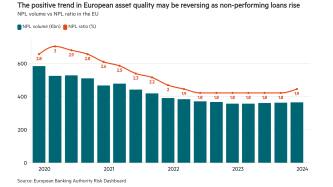It is appropriate that Luqman Arnold’s sun-filled office is in private equity/hedge fund-land in London’s swish Mayfair. The former CEO of Swiss bank UBS and UK bank Abbey is about to embark on his latest venture in a varied career in financial services.
“I am looking seriously at getting involved in direct investing, based in private equity but reaching into the area of convergence with hedge funds,” he says. “I would like to stay focused entirely on financial services. I think there is a lot of scope to invest well and actively in this area. However, anything I do, I would want to do internationally.”
The 55-year-old recently failed in his bid – allied with several large private equity firms – to take a big, listed financial services company into the private domain. This is not a new interest: in 2002 he “went quite far” with UK insurance company Royal & Sun Alliance before taking up the Abbey job.
He is no longer a fan of listed companies, noting that the impact of quarterly reporting makes investing long term to benefit the business problematic. Traditional fund managers are judged quarterly, while private equity firms take a longer view. In fact, given their incentive structure, private equity firms are better off taking a long-term view, he says, in his first full interview since leaving Abbey.
Current challenge
Nor does this father-of-one believe private equity and hedge funds are a fashion that will depart. “The big challenge today is what do you do with your money. You have very low yields so you are looking for investment management talent, which has gravitated to where it has flexibility and gets rewarded accordingly,” he says.
Mr Arnold does think there is an issue on whether leveraged buyouts will be able to deliver the same returns when interest rates rise but he notes, first, that in financial services the leverage is less than in corporates and, second, he does not see those rises coming soon.
“For the next two to three years it is difficult to see significant interest rate increases. Everyone is caught in this danse macabre where it is in everyone’s interest to keep the money flowing,” he says.
Married to an entrepreneurial and gorgeous Thai (whom I last saw barefoot and in sapphires, dealing with firemen as they attempted to extricate some party guests from a lift in their house), Mr Arnold believes in taking time out to ponder. In 1992, he took a year’s sabbatical to research cross-border institutional investment flows, following on from his job at CS First Boston and before his stint on the executive committee at Banque Paribas, now BNP Paribas.
Time to think
Even during his busy times as a CEO, he insisted his secretary carve out one hour and 15 minutes of private time daily “just so I could think”.
Here are some of those thoughts on what will affect the global banking panorama in the next 10 years, including a possible market disruption. Due to his current role as an adviser on strategy to Emilio Botín, chairman of Grupo Santander, and to his continuing involvement in the industry, he could not give examples. However, most readers of The Banker will probably be able to think of a few banks that fit the following criteria:
“The banking market has been delivering extraordinary cash flow but banks are increasingly challenged to deliver earnings growth. What is worrying for financial services in the long term is the flat yield curve – but in emerging markets, it is still steep.”











